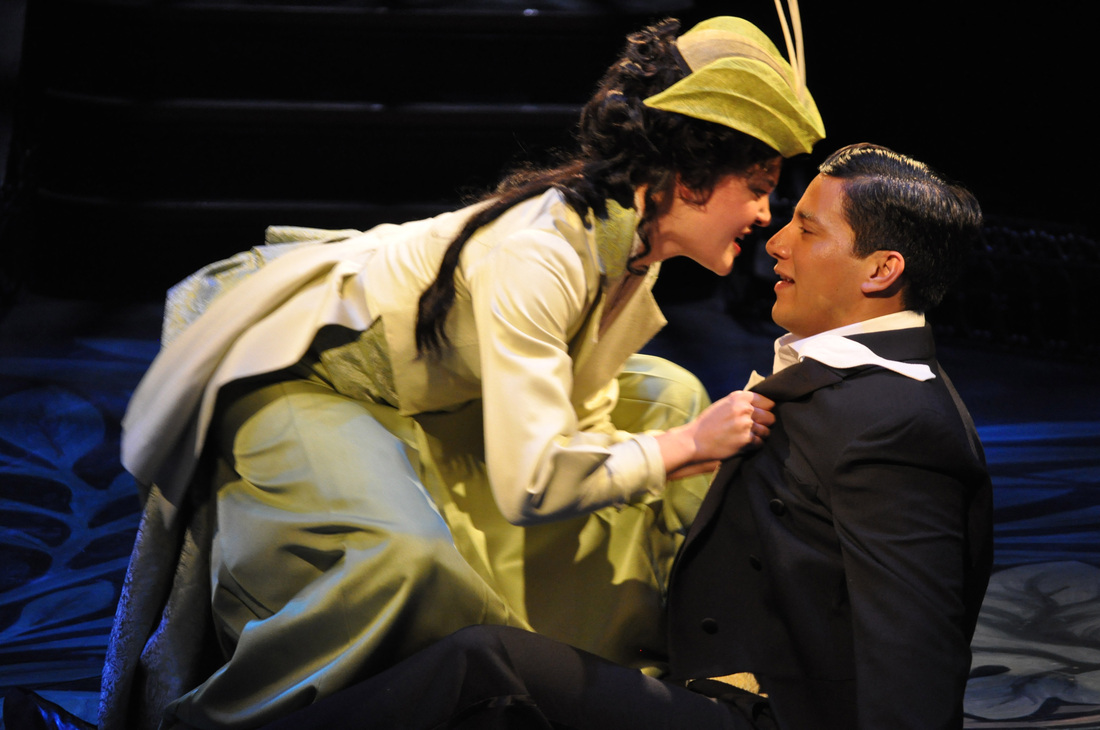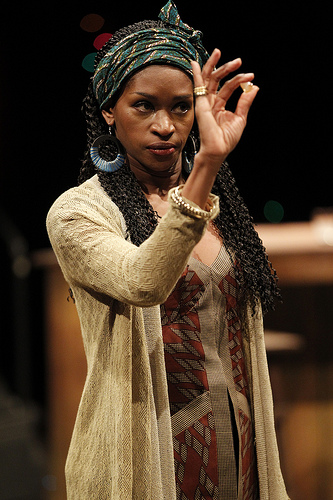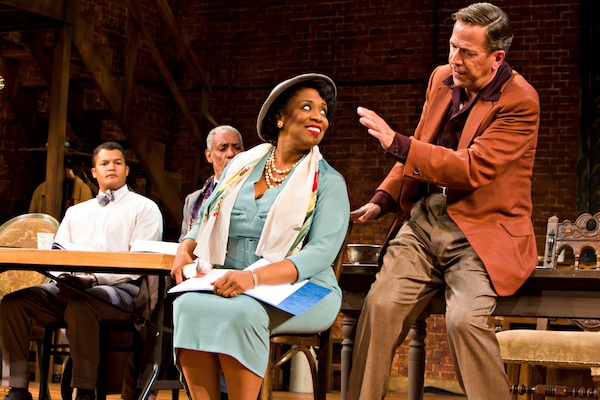|
JACQUELINE LAWTON: Why did you decide to get into theatre? Was there someone or a particular show that inspired you?
AMRITA RAMANAN: When I began high school, I focused primarily on math and science with the goal of becoming a doctor. During my sophomore year I learned that I needed to add another elective to my plate and theater was the only class that fit my schedule at the time. After three months, I was amazed at how theatre functioned as a transformative platform to share stories, evoke debates, and create empathy. It shifted my viewpoint of the world, emphasizing subjectivity over objectivity. From there, I was hooked and became one less pre-med student in the Indian community (sorry, Amma and Appa!). JL: How do you define dramaturgy? Or explain to people the work that you do? AR: Dramaturgy is the process of shaping the story – whether it is the story within a piece of theater or the story of a theater company. As Artistic Associate/Literary Manager at Arena Stage, my mission is to support the director, playwright, cast and creative team in the rehearsal room by offering questions and support for whatever needs best serve the artistic process – ranging from historical and topical research, responses to the progress of the script or production, and brainstorming how best to engage and invite with the audience and community into the world of the piece. In addition, I support Artistic Director Molly Smith and Director of Artistic Programming David Snider in shaping the storytelling of Arena Stage’s artistic programming by participating in season planning conversations and maintaining Arena Stage’s vision and mission – it’s ‘thru line’ –moving forward. JL: How long have you lived and worked as a dramaturg in DC? What brought you here? Why have you stayed? AR: I’ve been working in the Artistic Development department at Arena for five years – a fact that seems a bit surreal every time I mention it! I grew up in Las Vegas, so the desire to move to an environment that I perceived as the polar opposite of my hometown was dually appealing and terrifying. D.C. is such a rare city in that it’s simultaneously transient and intimate. I am fascinated by the rich interconnectedness of the artists and audiences who live here fused with the constant change of the city’s population and political identity every four to eight years. In addition, the people I’ve connected with here are always eager to feed their cultural appetites, making it a dramaturg’s playground in terms of who you interact with and the libraries, archives, cultural organizations and museums at your doorstep. JL: What skills and traits do you feel a successful dramaturg should have to support the development of a new play or a production? AR: Openness, a desire for innovation, and compassion. JL: What is the greatest part of being a dramaturg? What has been your most difficult challenge? AR: For me, nothing can compare to witnessing the birthing process of an idea and following its journey. I’m currently working with the incredible Tazewell Thompson on a new play Arena commissioned 12 years ago that I have been engaged with ever since I became an Allen Lee Hughes Literary Fellow in 2008. Even though the piece began well before I came to Arena, I’ve had the rare privilege of watching it change and grow, as well as developing a strong relationship with Tazewell through our relationship to the play. In terms of challenges, I think the role of the dramaturg is often stigmatized due to conflicting ideas about the function and ownership of practicing dramaturgy. I was once told by a playwright that they thought dramaturgs were “the police force” of the theatre, intentionally trying to monitor a playwright’s every move and beat them into submission. This story really troubled me as it put the dramaturg into the role of the aggressor as opposed to the advocate or collaborator. It is my belief that the dramaturgy for an artistic process should be owned by every collaborator in the room and that the dramaturg in support of this. Viewing the dramaturg as the police force is a harsh stereotype that needs to be overcome, but luckily I see more and more positive examples of healthy and sustainable dramaturgical collaborations every day. JL: Who are your favorite playwrights? What is it about their work that inspires or draws you to them? AR: There are so many writers that I deeply admire and have a tendency to devour their plays on the spot. I love the work of Marcus Gardley, Bill Cain, Lydia Diamond, Rajiv Joseph, Alice Childress, Ayad Akhtar, and Young Jean Lee – all of whom have challenged me, moved me, transported me to different worlds, and ultimately left a lasting imprint of their work on me. JL: DC audiences are ... AR: inquisitive, intelligent, and devoted JL: DC actors, designers and directors are... AR: brilliant, imaginative, and collaborative JL: DC playwrights are … AR: deft, passionate, and expansive JL: DC critics are ... AR: unapologetic, daring, and thoughtful JL: How do you feel the DC theatre community has addressed the issues of race and gender parity? How has this particular issue impacted you and your ability to get your work produced on the main stages? AR: Great strides have been made for more diversity and inclusivity throughout the DC theatre community, but as Wiletta Mayer says in Alice Childress’ Trouble in Mind, “We have to go further and do better.” I’ve been very proud of the shows Arena Stage, Woolly Mammoth Theater Company, Studio Theater, Forum Theater, Theater J and many others have championed on their stages that represent diversity both through the artists involved and content of the work, but until the work represented on stage reflects our burgeoning racial, ethnic, gender and cultural diversity throughout the world, we can’t rest on our laurels. JL: What advice do you have for an up and coming DC based dramaturg who has just moved to D.C.? AR: See as much art as possible and don’t be afraid to connect with artists whose work draws you in. There’s a bevy of wonderful opportunities in this city and artists ready to engage and add more collaborators to their artistic family. If you find an artist you want to work with and learn from, ask them out for coffee and watch the relationship grow from there. JL: What's next for you? Where can we keep up with your work? AR: So after six life-altering years in D.C., I'm saying goodbye (for now) and venturing into the next chapter of the book of life. First, heading to India on April 1st to explore the practices and methodologies of various theatre artists and troupes through support from the India Foundation for the Arts (and enjoying the perks of seeing my incredibly family and advancing my yoga and dance training while I'm there). Then, I’ll be serving as a co-collaborator with Double Edge Theatre on their summer spectacle, A Thousand and One Nights. I’ll miss ya, D.C., but this won’t be the end! Follow me on Facebook and stay in touch!
0 Comments
Your comment will be posted after it is approved.
Leave a Reply. |
My BlogI'm a playwright, dramaturg, and teaching artist. It is here where you'll find my queries and musings on life, theater and the world. My posts advocate for diversity, inclusion, and equity in the American Theatre and updates on my own work. Please enjoy!
Categories
All
Archives
June 2020
Reading List
|



